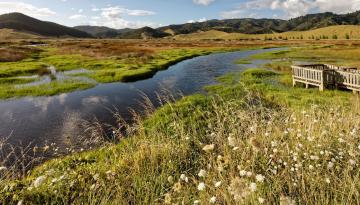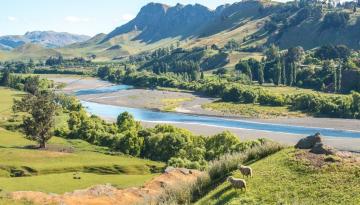
Greenpeace is calling on the Government to take a harder line against farmers after the publication of a new study warning of the dangers of nitrogen pollution from the livestock sector.
The study, titled Nitrogen emissions along global livestock supply chains, cautions that the safe 'planetary boundary' for nitrogen pollution has already been breached globally, putting the health of the planet in danger.
Researchers found the livestock sector emits one third of all human-induced nitrogen pollution, mainly from livestock effluent, synthetic nitrogen fertiliser use and the international transport of livestock commodities.
Greenpeace agriculture campaigner Gen Toop says the study shows the country needs to move more into regenerative agricultural practices.
"Any political party serious about tackling the climate crisis and cleaning up our rivers needs to commit to ending synthetic fertiliser use and invest in moving the country into more plant-based regenerative farming," Toop said on Friday.
According to the Ministry for Primary Industries, agriculture and livestock produce about half of New Zealand's total greenhouse gas emissions.
The country is aiming to have net zero emission for all greenhouse gases other than biogenic methane by 2050.
Earlier this year, the Government announced an extensive plan to protect the country's rivers and lakes. Included in that were new rules placing a cap on how much synthetic fertiliser can be used on farms, with an initial limit of 190kgs/hectare/year set, with a review by 2023.
Controversially, however, a decision on whether to implement a national bottom line for dissolved inorganic nitrogen (DIN) was delayed.
Environmentalists say such a bottom line is crucial for protecting the health of the ecosystem, but farmers and industry groups say implementing it would be impractical and expensive.
Toop said the Government needed to take more action against intensive dairying and synthetic nitrogen fertiliser.
"Nitrogen pollution from too many cows and too much synthetic fertiliser is worsening the climate crisis, contaminating our drinking water and destroying our rivers."
The country's farming industry has faced increased scrutiny in recent years from environmentalists, but many have defended the sector, saying it is among the most efficient and sustainable in the world.
They say if New Zealand produces less animal proteins it may end up having to import more food from abroad, from countries that have less sustainable practices than here.


